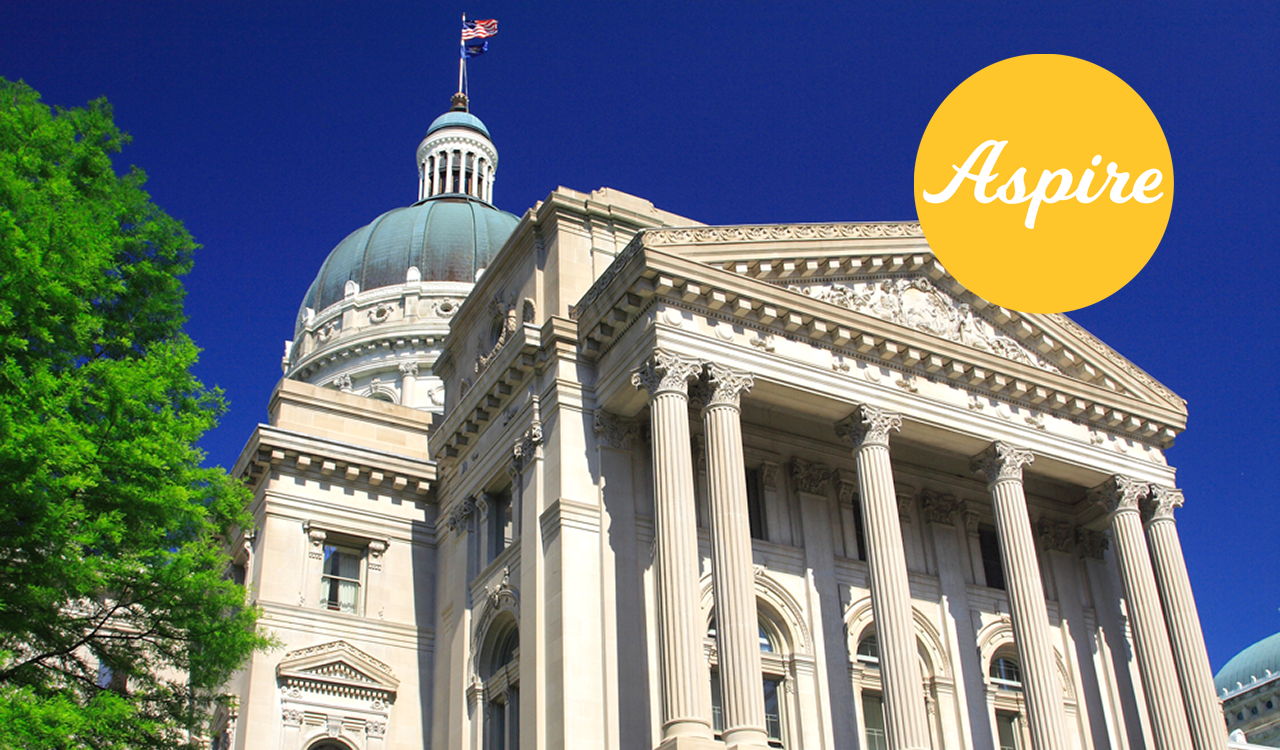Indiana Legislative Update: Technical Corrections and Veto Override

Today’s legislative update is great example of where School House Rocks meets politics, as we explain a rarely discussed final stop in the legislative process – “technical corrections day.”
The independent and nonpartisan Legislative Services Agency (LSA) reviews new laws after the conclusion of each legislative session to ensure there are no drafting errors and that the new laws do not duplicate existing statutes.
Members of the Indiana General Assembly returned to the Statehouse on May 24 for its annual technical corrections day. Corrections made to legislation on technical corrections days are not supposed to be substantive, meaning no major changes should be made to a specific piece of legislation. Corrections can range anywhere from correcting a misspelling to settling major conflicts within new laws.
The Indiana Constitution allows the General Assembly the ability to convene, introduce and adopt such legislation in a single day. This year’s technical corrections bill, Senate Bill 418, was explained in both the Senate and House chambers with very little debate or fanfare. The Senate passed by a vote of 46-0, and the House by a vote of 93-2.
Technical corrections day is also the time when the General Assembly may vote to overturn a gubernatorial veto.
There was a lot more fanfare, debate, and attention paid to the veto override of HEA 1041 - legislation that would prohibit transgender female athletes from participating in high school athletics. As a reminder, the House passed this bill in March by a vote of 66-30 and the Senate by a vote of 32-18.
HEA 1041 is one of two bills Governor Eric Holcomb vetoed at the end of the legislative session, stating that some student-athletes could be treated differently depending on where they play. In addition, he stated that there was no existing problem in Indiana that required intervention and that the IHSAA had rules and regulations in place that are working. He also feared that the bill would be challenged in the court system.
The veto override discussion started in the House, as the bill originated in that Chamber. The House has a tradition of not allowing debate on a veto override but allowing the bill author to make a brief statement. Rep. Michelle Davis (R-Whiteland), the author of HEA 1041, explained that the purpose for the legislation was to maintain fair competition in girls’ sports in the K-12 education system both now and in the future. In the end, the House voted 67-28 to override the Governor’s veto, with three Republicans voting against the veto override.
The bill then moved to the Senate for further deliberation, where there was debate allowed on the motion to override the veto. Specifically, Senator JD Ford (D-Indianapolis) - the only openly gay member of the Indiana General Assembly - spent thirty minutes asking for Senators to sustain the veto, reading letters from across the state to do the same. The Senate ultimately overrode the veto by a vote of 32-15.
Minutes after the House and Senate overrode the Governor’s veto, the American Civil Liberties Union (ACLU) sued Indianapolis Public School District on behalf of a 10-year-old transgender girl who will no longer be allowed to play softball on her all-girls softball team. The lawsuit asserts that preventing this and other transgender girls from participating in girls’ athletics is discrimination based on sex in violation of Title IX, and represents discrimination based on transgender status, as well as sex, in violation of the Equal Protection Clause of the United States Constitution. The lawsuit was filed in the U.S. District Court for the Southern District of Indiana.
With the veto override in place, the bill will officially become law on July 1, 2022.
Many have forgotten that Governor Holcomb vetoed another bill this session - HEA 1211 which contained language regarding broadband and includes limits on state agency rulemaking. The Indiana General Assembly did not vote to override this veto on May 24 and has until the end of the legislative session in 2023 to take that vote.
Aspire’s Business Advocacy Council is reviewing its foundational public policy principles to ensure we remain contemporary with the current business climate. The council will also study some of the most pressing matters facing the local and state business community to formulate priority policy positions for the upcoming 2023 General Assembly session.
Thank you for your support of Aspire and our work advocating for business interests. Have a great summer and we look forward to reporting on our work this late fall!
